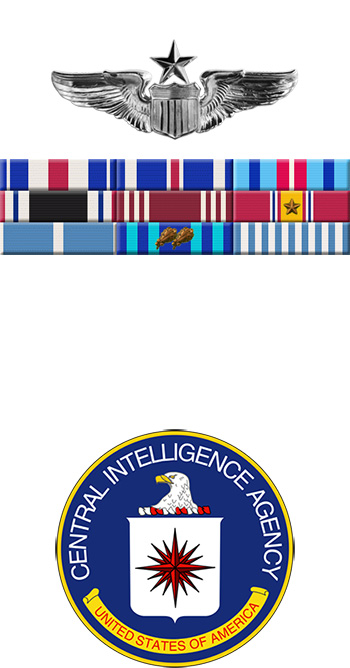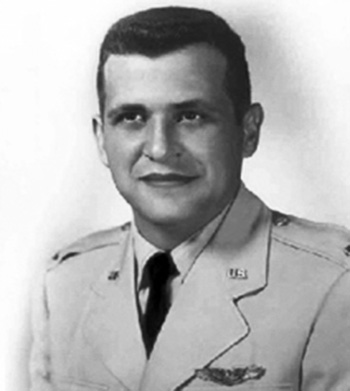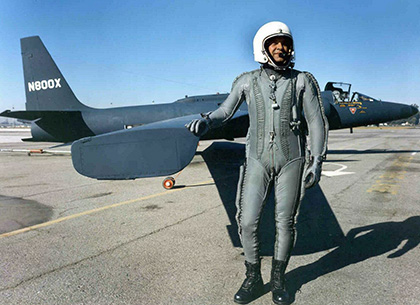
|
Francis Gary Powers, Sr. |
 |
|||
| Rank, Service | ||||
Captain O-3, U.S. Air Force |
||||
| Veteran of: | ||||
|
||||
| Tribute: | ||||
Francis Gary Powers was born on August 17, 1929, in Jenkins, Kentucky, and was raised in Pound, Virginia. After graduating with a bachelor's degree from Milligan College, Tennessee, Powers enlisted in the U.S. Air Force on October 5, 1950, and entered the Aviation Cadet Program of the U.S. Air Force in December 1951. He was commissioned a 2d Lt in the U.S. Air Force and was awarded his pilot wings at Williams AFB, Arizona, on December 19, 1952, and then completed F-84 Thunderjet Combat Crew Training at Luke AFB, Arizona, in June 1953. His first assignment was as an F-84 pilot with the 468th Strategic Fighter Squadron of the 508th Strategic Fighter Wing at Turner AFB, Georgia, from October 1953 until he joined the Central Intelligence Agency as a U-2 Dragon Lady pilot on May 13, 1956. During this time, Lt Powers deployed with his squadron to Japan in support of Ceasefire operations at the end of the Korean War from February to May 1954. After joining the CIA U-2 program, Powers began making reconnaissance flights over the Soviet Union in November 1956, and was later shot down over enemy territory on May 1, 1960. He was captured and held as a Prisoner of War by the USSR from May 1, 1960, until he was released during a prisoner exchange on February 10, 1962. After his release, he remained with the CIA until resigning on March 1, 1963, which also became his discharge date from the U.S. Air Force with the rank of Captain. Gary then flew as a U-2 test pilot with Lockheed from October 1963 to January 1970, and later flew helicopters for radio and television stations in Los Angeles, California, until he was killed in an aircraft accident on August 1, 1977. Francis Gary Powers was buried at Arlington National Cemetery. |
||||
|
||||


